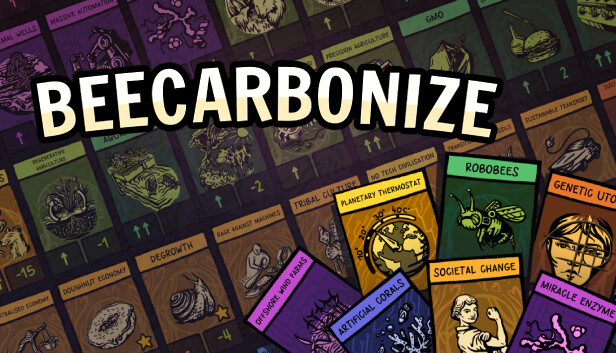🔗 GTG Links 27 – Degradeable games, ESG due dilligence & surprising storage media power findings

Greetings GTG readers, I hope you're doing well and staying away from climate disasters – fires, floods, heatwaves, we are seeing it all. It's been an extremely busy week both personally and professionally, but I've still managed to round up pieces on games designed for 'degradeability', another climate card game, ESG metrics impact on mergers and acquisitions, data centre sustainability challenges, FTSE Europe companies hitting (or not) climate targets, and some surprising findings on SSD vs HDD power usage.
Microsoft dominates new sustainability announcements
I wrote about this last week, but this really is worth highlighting again – evidence based, research-backed design rules for lowering energy demand on console and PC. Win-win. Check it out, and implement it in your game.

On the broader sustainability front, they also announced the sale of parts for Xbox controllers – as someone who's had to search ebay for PS5 controller parts (the spring on my launch controller still breaks every so often) this is a really helpful initiative. Repair makes stuff last, and is one of the best ways to reduce demand for new products (and their emissions).
/cdn.vox-cdn.com/uploads/chorus_asset/file/19331529/twarren_191030_3767_0002.jpg)
Everest Pipkin's prompts for “designing a degradeable videogame”
This is a really neat idea, part of Bath Digital Festival 2023, described as "A set of prompts to think about how video games have been disposable, are not separate from infrastructures involved in the destruction of ecosystems, are part of our futures and the potentials in futures and economies of loss."
I'm really taken by these playful exercises, and am pleasantly surprised to see my work acknowledged as an influence on Pipkin's thinking, having played and enjoyed Everest's 'Drift Mine Satellite' as part of the Solar Protocol exhibition. Here's maybe my favourite of the prompts:
Each participant finds a material. This may be something in or on the body; something you carry, something on the ground or in the walls. Touch the material. Think about its texture, weight, hardness, scale. Think about it decomposing, and count the years this may take. (You may guess at this duration, or look it up.) Participants arrange themselves from fastest degrading material to slowest. Name the materials out loud, in order, ending with the last. At the last material, exhale.
Read the rest here: https://containermagazine.co.uk/designing-a-degradable-video-game/
Beecarbonize has made it onto Steam
I played a tiny bit of this on mobile earlier in the year, though I didn't play enough and meant to come back to it. It's now on Steam, so I might actually get to it this time. An "environmental card strategy game", Beecarbonise follows in the footsteps of games like Fate of the World and is made with input from real climate scientists. Congrats on the Steam launch, team.

